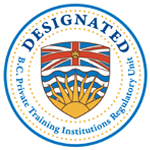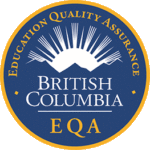This means that you do not immediately judge others; that, instead, you hold the belief that other individuals in your class or in your college are not trying to harm you and that if they do, that it may well be unintentional. It also means that you will give others the opportunity to clarify their actions if they have harmed you, before reaching a conclusion of their intent without input from them.
Our Values
This means that you will practice believing that everyone deserves kindness and consideration. This sometimes is difficult when you are learning about necessary boundaries; however, we believe that individuals can exhibit boundaries while still being kind.
All of us have biases due to how we were raised and our personal circumstances. Being a professional coach and counsellor requires us to work diligently to remove our biases so that we can help our clients let their story be their story, and so that we can truly see our clients for where they are at and help them become what they want to become, without manipulation or undue influence.
We realize that prejudice and racism is both individual and systemic. We are committed to promoting diversity and inclusiveness for marginalized populations because we know they have been harmed and continue to be harmed. In order to help the oppressed and downtrodden, we must first see, hear, and feel their plight. This develops empathy. In order to help this, we are committed to providing more and more understanding of gender-based issues and race-based issues. While we have provided opportunities for our community to develop empathy and understanding to those that suffer from addictions, mental health issues, and trauma, we realize that our efforts to understand these issues in the context of race and gender needs to vastly improve. We are committed to learning more about and incorporating this context in all that we do from activities and curriculum to hiring and training. We welcome all outside and inside help we can obtain to help us with this and are actively developing and implementing policy and practices to assist this.
This is something that we must practice as helping professionals. If we are in disagreement, no matter how strenuous or pointed or justified the disagreement is, we need to always practice the 1st rule above (unconditional positive regard) while we articulate the area(s) we disagree with. While we know that NVC is a system that was devised by a white person, with various diversity and inclusiveness consultations we have had with consultants who are experts in promoting diversity and protecting marginalized populations, we believe that NVC is still a good model to use and that we should still practice it, as it provides great possibilities for all parties within a conversation to be heard, respected, and included.
Having disputes is natural and being able to resolve disputes requires conflict resolution skills- skills that benefit coaches and counsellors. To resolve a conflict or dispute, the individual who feels they need something resolved should first approach the individuals they have feelings against or about. They should seek to provide clear professional communication on what they need the other party to understand, and how they need the other party’s support. Both parties need to exercise compassion, unconditional positive regard, and really be willing to listen. Both parties should actively restate and seek to clarify their understanding and attempt to have their feelings also understood by kindly sharing their experiences and their perspectives; with this method, most disagreements will be resolved. Permissions and audience are two additional factors that must be considered when working through Dispute Resolution.
If the dispute cannot be resolved with these honest attempts (which sometimes does occur), then we recommend that an instructor or administration team member is sought out to assist. If that does not work, we want you to reach out to either education or student services.
Whatever you do, please do not think it is up to you to adjudicate this and force a resolution. If you have done your best and cannot resolve something, please make sure you bring in help! And if you are not happy with the help you are getting, please feel free to go further to get the help you need. We are all here to assist you.
While it is important to weigh and understand when you don’t have control of a situation, there are almost always factors and roles that we can play in helping every situation. Instead of pointing a finger at others, can you self-assess and understand what you can do to improve, prod, guide and support? Can you do so with professionalism while leading by example. Self responsibility clears the way for yourself and shows the way for others to be able to move forward with grace, honour, and dignity.
Be patient with yourself, the process, and others and realize that no one is perfect. We all make mistakes. However, we all want to be here, and because we all want to help others we are starting with an incredible common cause to hold space for others and to help others! This common purpose can overcome all. Understand that none of the steps can be accomplished easily and that many of the steps can be life-long goals. We are all in this together!






